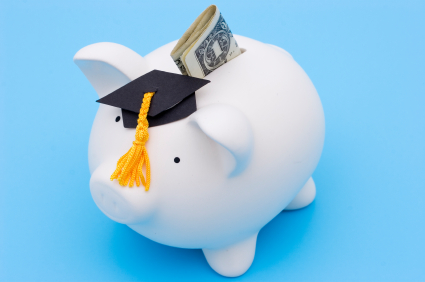 A few months ago I gave a verbal spanking to a woman who equated college loans with handouts. She wondered why people didn’t just delay college for a year and earn enough money to pay for their entire education, as she did back in the day.
A few months ago I gave a verbal spanking to a woman who equated college loans with handouts. She wondered why people didn’t just delay college for a year and earn enough money to pay for their entire education, as she did back in the day.
I pointed out that there weren’t many jobs available to newly-minted high school graduates that paid $60,000, which is about the minimum you’d need to pay for a four-year degree today.
Apparently my reader isn’t the only one having trouble keeping up with the times. A recent New York Times story quoted Virginia Foxx, a Congresswoman from North Carolina who heads a House subcommittee on higher education and work force training, saying she was bewildered why people went into debt instead of working their way through school the way she did.
Here’s what Times writer Ron Lieber pointed out:
But students nowadays who try to work their way through college without parental support or loans face a financial challenge of a different order than the one that Ms. Foxx, 69, confronted as a University of North Carolina undergraduate more than 40 years ago. Today, a bachelor’s degree from Appalachian State, the largest university in her district, can easily cost $80,000 for a state resident, including tuition, room, board and other costs. Back in her day, the total was about $550 a year. Even with inflation, that would translate to just over $4,000 for each year it takes to earn a degree.
A plucky, lucky few manage to get through college with no loans or parental support. But many of those who try wind up dropping out, unable to balance the work hours required with the demands of school.
If you’re one of those who may be stuck trying to pay your own way, Zac Bissonnette’s book “Debt Free U” can provide helpful guidance. If you’re a parent or a policymaker, however, you should check your views about the viability of kids’ working their way through college with today’s realities.
Things may be different now, but they’re different in a way that isn’t good. I went to school 40 years ago and between scholarships, my parents and my summer jobs, I graduated nearly debt free. Students today may graduate with crushing debt and face an uncertain job market. We need to consider the system that we have now and think about whether the results are worth the cost. I don’t think that the real disagreement is about student loans. I think that it is about the perceived attitude of the students about learning or partying.
And a state-school education, unlike a student loan, really is a “handout” in the sense that these people are using the word, in that it’s partly paid for by taxpayers. Funny how the anti-government crowd tends to forget that.